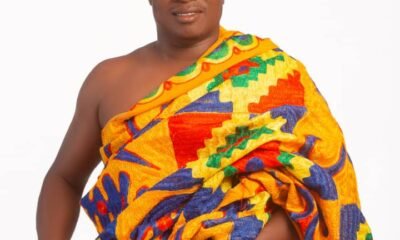Editorial
Promote social inclusion for People with Disabilities
It is regrettable that in this modern age and advancement, some segments of society still adhere to unhealthy cultural and traditional practices that have a detrimental impact on People Wth Disabilities (PWDs).
It is time society adopted a more accepting stance toward PWDs.
PWDs, including the blind, the deaf, and albinos, face discrimination on a daily basis in the workplace, like the health and education sectors, and other settings due to unfavourable cultural norms that really cause them pain and make life intolerable for them.
Mothers of children with disabilities experience anxiety and discomfort since many people think that PWDs should not be living. Even so, is it someone’s fault if they are disabled?
While individuals without disabilities are entitled to the fundamental freedoms and human rights as citizens as outlined in the 1992 Constitution, it appears that those with disabilities face discrimination on all fronts.
People who are albinos face even more challenging situation because some people in the community feel that they are taboo, and should not be allowed to live.
“I suffer the same, therefore I know it’s true. People do not want us to be close to them for any reason, and we are treated as second-class citizens,” Mr. Joseph Atsu Homadzi, national president of the Ghana Federation of Disability Organisations (GFDOs), told our correspondent.
“In some communities, it is believed that when you are going out in the morning for any activity and you meet a person or somebody with a visual impairment, it means a misfortune is about to befall you; for which reason you must return home,” he stated.
How is it possible for someone in this modern world to have such a bad opinion of PWDs? Some people still believe that being disabled is a curse or a punishment for whatever they have done wrong and that hanging around with them will bring the same fate or punishment.
In actuality, it is critical for society to know that although some people are born deformed, others acquire disabilities as a result of environmental mishaps or certain medical disorders, such as glaucoma, measles, or cataracts that cause blindness, deafness, or both.
The national president claims that despite their infirmities, PWDs can still make significant contributions to the development of this nation if given the chance, and that efforts to educate people to stop these regrettable activities have been ineffective.
The Spectator expresses concerns about these developments which have the potential to harm those with PWDs and impede their aspirations.
Therefore, we make a plea to the media, religious organisations, and other institutions to draw attention to the predicament of PWDs in order to shift public opinion and win over hearts.
PWDs require our respect and decency; we must put ourselves in their position.
Fostering positive attitudes towards PWDs is crucial in order to advance social inclusion.
Editorial
Residents uncomfortable with noise pollution at Abeka-Botwe
Dear Editor,
I write to complain about the incessant noise pollution from churches and drinking spots in the Abeka- Botwe community.
Despite the many complaints from residents, the churches and operators of these drinking spots have turned a deaf ear to these complaints from the neighbours and residents.
Even suggestions to reduce the volume of their gadgets have been ignored.
One can audibly hear these noise from meters away and it’s very bad especially for those living close. In communicating, one is forced to shout for the other to hear.
These churches holds evening services twice or thrice a week and morning service on Thursdays and Sundays.
On all these occasions, one is forced to leave the house, move somewhere to relax and return home when they are done.
Most residents are at their wits end as complains to the churches and drinking spots have not been heeded to.
Through this platform, I wish to appeal to the Okaikwei North Municipal Assembly to take the needed action against them or caution them to give some relief to residents.
Akosua Addo
Abeka-Botwe
Editorial
Fix deplorable roads at Dansoman Camara
Dear Editor
I am writing to express my concern about the deplorable condition of the roads in my area, Dansoman Camara, specifically the numerous potholes that have become a menace to drivers and pedestrians alike.
The roads in the neighbourhood are full of potholes and for months has become so difficult for drivers to navigate their way on them.
Despite the numerous complaints to the local authorities, nothing seems to have been done to address the issue. The potholes are not only causing damage to vehicles but also posing a significant risk to road safety.
As the rainy season draws closer, it will turn into something else as these huge potholes become large pools of water.
And as drivers drive through them, they splash the water on commuters. The buildings nearby are also not left out, leaving them in a poor state.
As a resident of this area, I am appalled by the lack of attention given to this critical issue. I urge the relevant authorities to take immediate action to repair the roads and fill the potholes.
It is their responsibility to ensure that the roads are safe and well-maintained.
I hope that by highlighting this issue, I can bring attention to the plight of residents in my area and prompt the authorities to take necessary action.
Eugene Ampiaw,
Dansoman Camara







